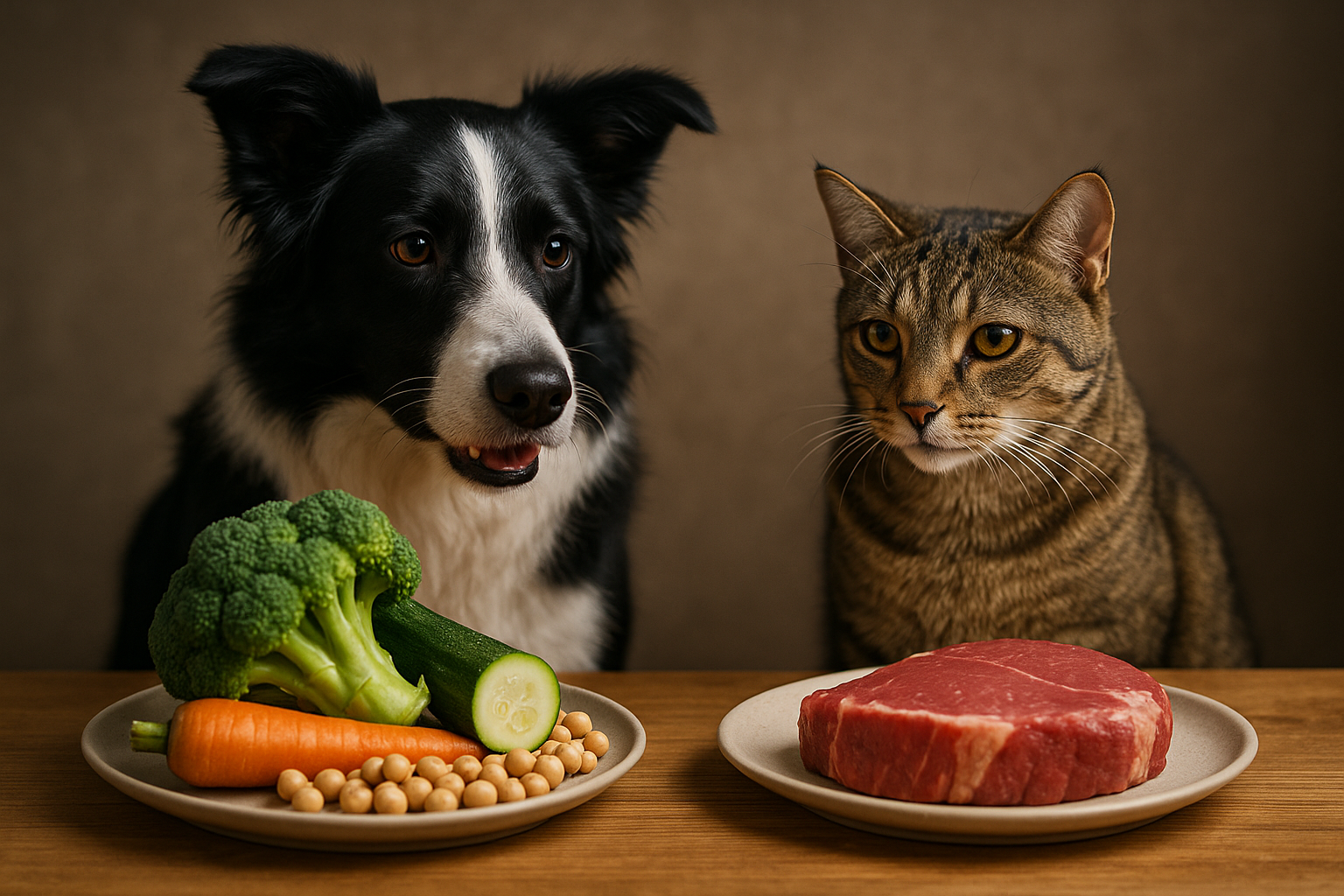The New Wave: Understanding the Popularity of Plant-Based Diets for Pets
Dive into the latest trend in pet care—plant-based diets for cats and dogs. This article will explore the history, benefits, and considerations of this controversial yet increasingly popular dietary choice. Historically, cats and dogs have been predominantly carnivorous, with their diets centred around meat. However, this began to change with the rise of commercial pet food in the mid-20th century, which often incorporated grains and vegetables. This shift was initially due to economic reasons, as plant-based ingredients were cheaper than meat. Over time, though, some pet owners began to experiment with fully plant-based diets for their pets, prompted by concerns about the environmental impact of meat production and the welfare of livestock animals.

The Current Trend: Plant-Based Pets
Today, more and more pet owners are choosing plant-based diets for their animals. This trend mirrors the increase in vegetarianism and veganism among humans, with many pet owners seeking to extend their ethical and environmental choices to their pets. Some are also motivated by health concerns, believing that a plant-based diet could help their pets avoid certain diseases associated with meat consumption.
Economic Implications of Plant-Based Pet Diets
The market for plant-based pet food is growing rapidly. It’s still a small segment of the overall pet food market, but its growth rate far outstrips that of traditional pet food. Price-wise, plant-based pet food tends to be more expensive than regular pet food, reflecting the higher cost of ingredients and the niche nature of the market.
Research and Controversy: Nutritional Adequacy of Plant-Based Diets
The main controversy around plant-based diets for pets is whether they can provide all the necessary nutrients. Research suggests that it’s possible to formulate nutritionally adequate plant-based diets for dogs, but it’s more challenging for cats, which are obligate carnivores. Critics argue that it’s unnatural and potentially harmful to feed pets a diet devoid of meat. Proponents, however, point to anecdotal evidence of pets thriving on plant-based diets and argue that commercial meat-based pet foods often contain low-quality meat and harmful additives.
Making an Informed Decision: Is a Plant-Based Diet Right for Your Pet?
Before switching your pet to a plant-based diet, it’s crucial to consult with a veterinarian. They can assess your pet’s specific nutritional needs and advise on whether a plant-based diet is a suitable option. If you decide to proceed, they can help you select a high-quality plant-based pet food or design a balanced homemade diet. Regular check-ups will also be necessary to monitor your pet’s health.
In conclusion, plant-based diets for pets are a rapidly growing trend with deep historical roots and significant economic potential. However, the nutritional adequacy of these diets is still a subject of debate. Pet owners interested in this option should proceed with caution, consulting with a veterinarian to ensure their pet’s health.




